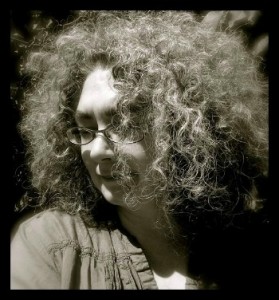
About Coreena McBurnie:
I write mythological fiction — my passion for ancient cultures started many years ago and, after studying Classics in university and earning my Master’s degree, I am channeling this love into my writing. Prophecy, book 1 in Antigone, The True Story series, is my first published novel. I do most of my writing in Novembers during Nanowrimo and spend the rest of the year editing and reading. I live in BC, Canada with my husband, three kids, and our cat.
What inspires you to write?
I absolutely love Greek mythology and often use this for my inspiration. I also love reading books with great heroines and they have inspired me to create my own. And, I love the connections that I’m able to make when I write — this has always been the way for me, whether writing papers for school, journalling, writing poetry, or novel writing. It is exhilarating to be immersed in the process.
Tell us about your writing process.
I am mostly a seat of the pants writer. Sometimes I start with a character and see where they want to go. Usually, I have a vague outline of a plot, but like to leave things flexible and open for what might come up. For my Antigone series, I took Sophocles’ Oedipus plays and retold them from Antigone’s point of view, so many of the major plot points where there, but I had to reinterpret them. I also left room for the fantasy element and for Antigone to have her own voice.
As for software, I just use a basic word processing program. I tried to use Scrivener, and can totally see the benefits of it, but it still didn’t work for me. When I’m done, I like to leave my work for at least a month before reading it over and editing it. I need that distance.
For Fiction Writers: Do you listen (or talk to) to your characters?
I like to let the characters talk. It really is best if I listen to them and see where they want to go, because they usually know if I get out of the way. They often even foreshadow what’s going to happen later without me even realizing!
What advice would you give other writers?
Turn off your inner editor and write bad first drafts. They are meant to be bad. If you stop worrying about perfection, it is a lot easier to play with your book, go in crazy directions that lead to interesting places, and to actually have something to edit in the end. Good books are edited, not written that way on the first go. And take baby steps. Even writing for half an hour a day adds up to a book.
How did you decide how to publish your books?
I decided to go with self-publishing after attending several writing conferences and doing a fair amount of research. Partly, it is an exciting time to be self-publishing as there is so much opportunity and so many changes in the industry. I like the idea of having that control over my books, of not requiring a gatekeeper, and letting the readers decide what they like. I think it is important to look at what you want out of publishing, do your research, then go with your gut.
What do you think about the future of book publishing?
It is a very exciting time in book publishing. There are so many changes and I am happy to be a part of them. Whether you self-publish or not, it is changing how people look at, market, and buy books. I think print books will have to up their game and become more appealing. For instance, I just bought The Six of Crows, partly because it is an absolutely stunning edition with rich, red end papers, black gilding on the page edges, and lovely illustrations. That made me want to buy the hardcover; otherwise I may have been tempted by the ebook. I think everyone is going to be pushed to get better and better.
What do you use?: Professional Cover Designer, Beta Readers
What genres do you write?: I write young adult mythological fantasy.
What formats are your books in?: Both eBook and Print
Website(s)
Coreena McBurnie Home Page Link
Link To Coreena McBurnie Page On Amazon
Link to Author Page on other site
Your Social Media Links
Goodreads
Facebook
Twitter
All information in this post is presented “as is” supplied by the author. We don’t edit, to allow you, the reader, to hear the author in their own voice.
